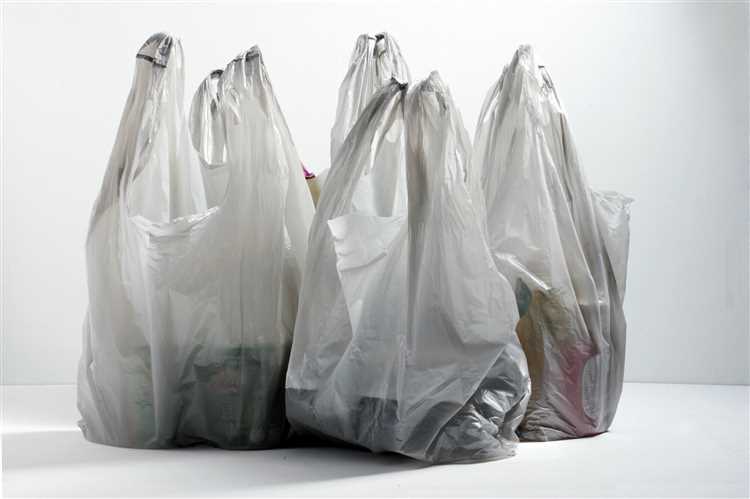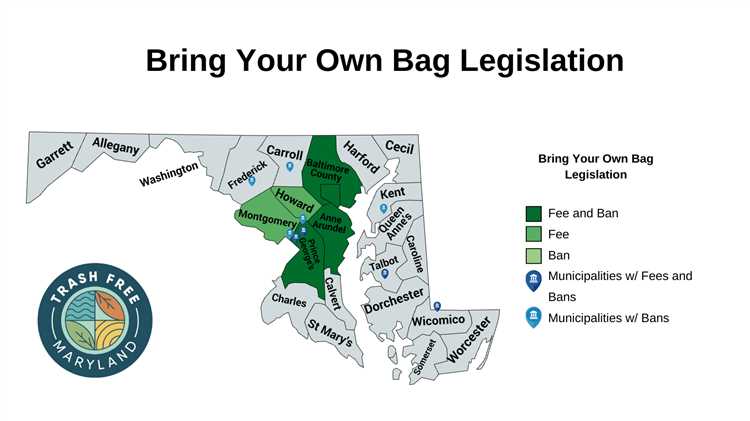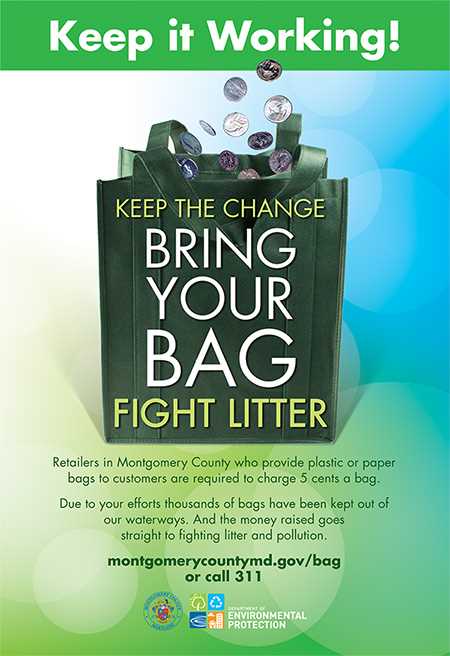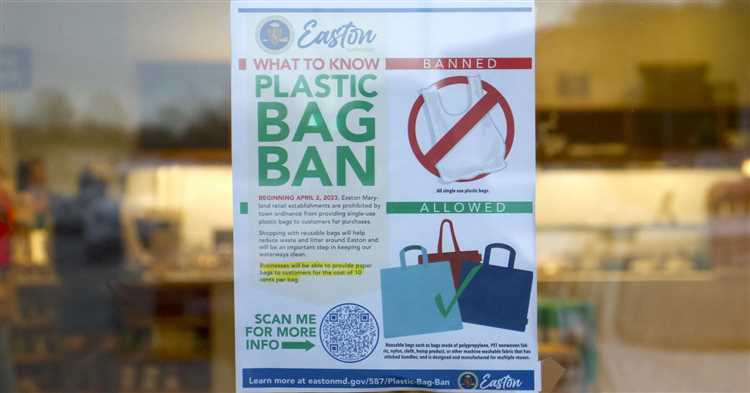
In recent years, there has been a growing concern about the environmental impact of plastic bags. In response to this concern, many states and cities across the United States have implemented regulations to reduce the use of plastic bags. One such state is Maryland, where lawmakers have taken action to address the issue.
In 2020, Maryland became the latest state to ban the use of plastic bags in certain retail stores. The law, which went into effect on October 1, 2020, prohibits retailers from providing customers with single-use plastic bags. This move was motivated by the desire to reduce litter, protect wildlife, and promote a cleaner and more sustainable environment.
The ban applies to most retail establishments, including grocery stores, convenience stores, and pharmacies. However, there are some exceptions to the rule. For example, stores can still provide plastic bags for certain purposes, such as packaging raw meat or seafood, or for holding prescription medications.
Since the implementation of the ban, Maryland residents have been encouraged to bring their own reusable bags when they go shopping. Many stores offer reusable bags for sale, and some even provide incentives for customers to use them, such as discounts or loyalty points. The ban on plastic bags is just one step towards a greener future, and it is hoped that it will inspire other states to take similar action to protect our planet.
- Understanding Plastic Bag Regulations in Maryland
- Ban on Thin Plastic Bags
- Effectiveness of the Plastic Bag Ban
- Maryland’s Plastic Bag Policy: An Overview
- Prohibition on Plastic Bags
- Implementation and Enforcement
- Environmental Impact of Plastic Bags in Maryland
- 1. Pollution
- 2. Climate Change
- Benefits of Banning Plastic Bags in Maryland
- 1. Reduces Plastic Pollution
- 2. Protects Marine Life
- 3. Conserves Resources
- 4. Promotes Alternative Solutions
- Penalties for Using Plastic Bags in Maryland
- Alternative Solutions to Plastic Bags
- How Maryland’s Plastic Bag Ban Compares to Other States
- undefined
- What is the law regarding the use of plastic bags in Maryland?
- When did the ban on plastic bags go into effect in Maryland?
- Which retailers are affected by the ban on plastic bags in Maryland?
- Are there any exceptions to the ban on plastic bags in Maryland?
- What are the alternatives to plastic bags in Maryland?
- Can I still use plastic bags in Maryland?
- What are the consequences for using plastic bags in Maryland?
Understanding Plastic Bag Regulations in Maryland
Plastic bags have come under scrutiny for their negative impact on the environment, prompting many states to implement regulations to reduce their use. In Maryland, there are specific rules and regulations regarding the use of plastic bags to help minimize their impact on the environment.
Ban on Thin Plastic Bags
In 2020, Maryland implemented a ban on thin plastic bags with a thickness of less than 4 mils. This ban applies to most retailers, including grocery stores, convenience stores, and other businesses that sell goods. The goal of this ban is to encourage the use of reusable bags and reduce the amount of single-use plastic waste.
Businesses are required to provide alternative options to customers, such as paper bags or reusable bags, for a small fee. The ban does not apply to certain types of plastic bags, such as those used for containing produce, meat, or dry-cleaned clothing.
Effectiveness of the Plastic Bag Ban
The implementation of the plastic bag ban in Maryland has been effective in reducing the use of single-use plastic bags. Retailers and consumers have adapted to the regulations by using reusable bags or opting for alternative options.
By reducing the consumption of plastic bags, Maryland is taking a step towards protecting the environment and reducing plastic pollution. This ban encourages individuals to be more conscious of their consumption habits and make sustainable choices.
It is important for both businesses and consumers to understand and comply with the plastic bag regulations in Maryland to contribute to a cleaner and healthier environment.
Disclaimer: The information provided in this article is for general informational purposes only and should not be considered legal advice. Please consult with the appropriate authorities or legal professionals to ensure compliance with the current regulations in Maryland.
Maryland’s Plastic Bag Policy: An Overview
Maryland has implemented a plastic bag policy aimed at reducing the use of single-use plastic bags. The state recognizes the negative impact that plastic bags have on the environment, including their contribution to pollution and harm to wildlife.
Prohibition on Plastic Bags
As of October 1, 2021, it is illegal for businesses in Maryland to distribute plastic bags to customers. This prohibition applies to both retailers and food service establishments. The aim is to encourage individuals to bring their own reusable bags when shopping or dining out.
While plastic bags are no longer allowed, there are some exceptions to the ban. Certain types of plastic bags are still permitted, such as those used for specified purposes like packaging meat, poultry, seafood, and produce, as well as bags provided by pharmacies for prescription medications.
Implementation and Enforcement
The Maryland Department of the Environment is responsible for implementing and enforcing the plastic bag policy. They work in collaboration with local jurisdictions to ensure compliance. Businesses found distributing plastic bags in violation of the policy may face fines and penalties.
The state has also launched public awareness campaigns to educate residents and businesses about the plastic bag policy and the importance of reducing plastic waste. These campaigns aim to promote the use of reusable bags and highlight the potential environmental benefits.
Additionally, the state has partnered with organizations and retailers to encourage the adoption of alternative packaging options, such as paper bags or reusable cloth bags. By promoting these alternatives, Maryland hopes to create a sustainable and environmentally-friendly shopping experience for its residents and visitors.
In conclusion, Maryland’s plastic bag policy represents the state’s commitment to reducing plastic waste and protecting the environment. By banning plastic bags and promoting reusable alternatives, Maryland aims to mitigate the harmful impacts of plastic pollution and encourage sustainable practices among its residents and businesses.
Environmental Impact of Plastic Bags in Maryland
Plastic bags have become a major environmental concern in Maryland and many other parts of the world. These single-use bags, often given out by retailers, have significant negative impacts on the environment.
1. Pollution
Plastic bags are not easily biodegradable and can persist in the environment for hundreds of years. When not properly disposed of, they can end up in water bodies and landfills, where they release toxic chemicals into the soil and water. This pollution poses a serious threat to wildlife, as animals can mistake plastic bags for food and suffer from ingestion or suffocation.
2. Climate Change
The production of plastic bags requires the extraction of fossil fuels, such as oil and natural gas, which contribute to greenhouse gas emissions. These emissions accelerate climate change and have long-term consequences for the environment. Additionally, the manufacturing process for plastic bags consumes a significant amount of energy and resources, further contributing to carbon emissions.
Efforts to reduce the use of plastic bags in Maryland aim to mitigate these environmental impacts. Several cities in the state have implemented plastic bag bans or fees to promote the use of reusable alternatives. By encouraging the use of reusable bags and reducing the reliance on single-use plastic bags, we can help protect Maryland’s environment for future generations.
Benefits of Banning Plastic Bags in Maryland
Plastic bags have become an enormous environmental problem, causing significant harm to our planet. Banning plastic bags in Maryland can lead to numerous benefits and help minimize the negative impact on the environment.
1. Reduces Plastic Pollution

By banning plastic bags, Maryland can significantly reduce plastic pollution in its waterways, parks, and natural areas. Plastic bags take hundreds of years to decompose, and in the meantime, they can harm wildlife, clog drainage systems, and contribute to the overall pollution of our ecosystems. By eliminating these bags, we can preserve the natural beauty of Maryland’s landscapes and protect its biodiversity.
2. Protects Marine Life
Plastic bags often end up in the ocean, where they pose a severe threat to marine life. Sea turtles, birds, and other marine animals can mistake plastic bags for food and ingest them, leading to injury or death. Banning plastic bags in Maryland can help safeguard the marine ecosystem and protect endangered species that depend on a healthy ocean environment.
3. Conserves Resources
The production of plastic bags requires the use of fossil fuels and emits harmful greenhouse gases. By banning plastic bags, Maryland can reduce its reliance on fossil fuels and contribute to the conservation of these valuable resources. Additionally, the ban can encourage the use of reusable bags, which can be made from sustainable materials and promote a more sustainable lifestyle.
4. Promotes Alternative Solutions
Banning plastic bags can drive innovation and encourage the development of alternative packaging solutions. It can motivate businesses and consumers to adopt more sustainable practices, such as using biodegradable and compostable bags or opting for reusable options. This shift can lead to a more eco-friendly economy and inspire other states and regions to follow suit.
In conclusion, banning plastic bags in Maryland can bring about numerous benefits, including a reduction in plastic pollution, protection of marine life, conservation of resources, and the promotion of alternative solutions. By taking this step, Maryland can play a crucial role in preserving the environment and creating a better future for generations to come.
Penalties for Using Plastic Bags in Maryland

As of October 1, 2021, it is illegal to use plastic bags for retail sales in Maryland. The state has implemented a ban on single-use plastic bags to reduce environmental pollution and promote sustainability.
Individuals who are found using plastic bags for retail sales can face penalties and fines. The first offense is typically a warning, where businesses and individuals are given time to switch to alternative options such as reusable bags or paper bags.
If a business or individual continues to use plastic bags after the warning, they may face fines and penalties. Repeat offenders can face steeper fines and may be subject to additional enforcement actions.
The specific penalties for using plastic bags can vary depending on the jurisdiction within Maryland. However, the fines generally range from $100 to $500 for businesses and individuals who disregard the ban.
It’s important for businesses and individuals to be aware of the ban and comply with the regulations to avoid penalties. Many retailers have already transitioned to alternative packaging options, such as paper bags or encouraging customers to bring their own reusable bags.
By reducing the use of plastic bags, Maryland aims to protect the environment, wildlife, and human health. The switch to more sustainable packaging options can help minimize pollution, conserve resources, and promote a healthier and greener future for the state.
Alternative Solutions to Plastic Bags
While plastic bags are currently being phased out in Maryland, it’s important to consider alternative solutions to minimize plastic waste and protect the environment. Here are some eco-friendly options to consider:
1. Reusable Bags: One of the most popular alternatives to plastic bags is using reusable bags made from fabric, canvas, or other durable materials. These bags can be used multiple times and help reduce the need for single-use plastic bags.
2. Paper Bags: Paper bags are another alternative to plastic bags. They are biodegradable and can be easily recycled. However, it’s important to note that paper bags also have their environmental impact, as they require energy and resources to produce.
3. Compostable Bags: Compostable bags are made from plant-based materials that break down into compost when disposed of properly. They offer a more sustainable option compared to traditional plastic bags and can be used for various purposes including packaging for organic waste.
4. Biodegradable Plastic Bags: Biodegradable plastic bags are designed to break down naturally over time. They are made from special materials that allow microorganisms to break them down into organic matter. However, it’s important to ensure that these bags are disposed of properly to ensure they break down as intended.
5. Bring Your Own Bags: Another simple solution is to bring your own bags when shopping. Whether it’s reusable bags or backpacks, bringing your own bags reduces the need for single-use plastics and encourages a more sustainable lifestyle.
Remember, the best solution to reduce plastic waste is to avoid using single-use plastics altogether and opt for more sustainable alternatives.
How Maryland’s Plastic Bag Ban Compares to Other States

Maryland is just one of many states that have implemented a ban on single-use plastic bags in an effort to reduce waste and protect the environment. However, the specifics of Maryland’s plastic bag ban may differ from other states. Here are a few key points to consider:
- Timing: Maryland’s plastic bag ban went into effect on October 1, 2021. Other states may have implemented their bans at different times, so it is important to check the specific regulations in each state.
- Scope: Maryland’s ban applies to all retail establishments, including grocery stores, pharmacies, and convenience stores. Some states only ban plastic bags from certain types of businesses, while others have broader bans that cover all retail establishments.
- Exceptions: Maryland’s ban does allow for some exceptions. For example, plastic bags can still be used for certain items, such as fresh produce, meat, and prescriptions. Other states may have different exceptions or restrictions.
- Alternative Options: Maryland encourages the use of reusable bags as an alternative to single-use plastic bags. Some states provide incentives for using reusable bags, such as discounts or rewards programs.
- Enforcement: Maryland’s ban is enforced through fines for businesses that violate the regulations. Other states may have different enforcement mechanisms in place, such as warnings or educational campaigns.
It’s important to note that plastic bag bans can vary significantly from state to state. If you are traveling or moving to a different state, make sure to familiarize yourself with the local regulations to ensure compliance.
undefined
What is the law regarding the use of plastic bags in Maryland?
In Maryland, it is illegal for certain retailers to provide plastic carryout bags to customers. This ban is aimed at reducing plastic pollution and promoting the use of more sustainable alternatives.
When did the ban on plastic bags go into effect in Maryland?
The ban on plastic bags in Maryland went into effect on October 1, 2021.
Which retailers are affected by the ban on plastic bags in Maryland?
The ban on plastic bags in Maryland applies to most retail establishments, including grocery stores, convenience stores, pharmacies, and other businesses that sell goods directly to customers.
Are there any exceptions to the ban on plastic bags in Maryland?
Yes, there are a few exceptions to the ban. Plastic bags can still be provided for certain items, such as raw meat, seafood, and produce. Additionally, plastic bags can be used for prescription medications and to contain dry cleaning or laundry.
What are the alternatives to plastic bags in Maryland?
Customers in Maryland are encouraged to use reusable bags, such as cloth or canvas bags, when shopping. Some retailers may also offer paper bags as an alternative, which are generally considered more environmentally friendly than plastic bags.
Can I still use plastic bags in Maryland?
No, starting from July 1, 2021, it is illegal to use plastic bags for most businesses in Maryland.
What are the consequences for using plastic bags in Maryland?
If a business is caught using plastic bags in Maryland after July 1, 2021, they can face fines up to $250 for the first offense and up to $500 for subsequent offenses.